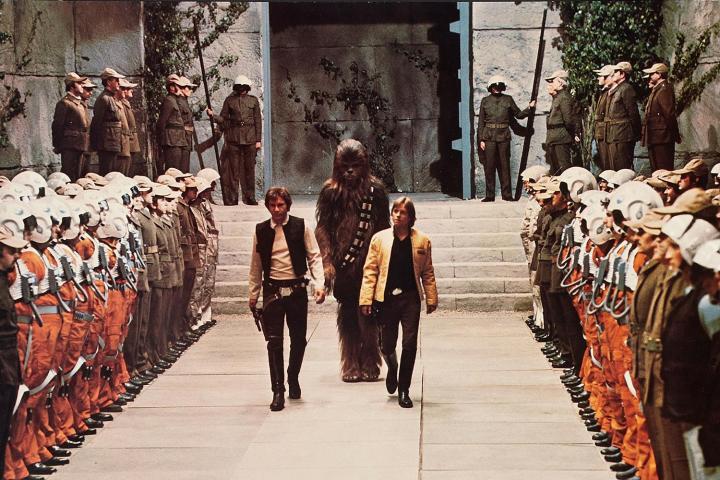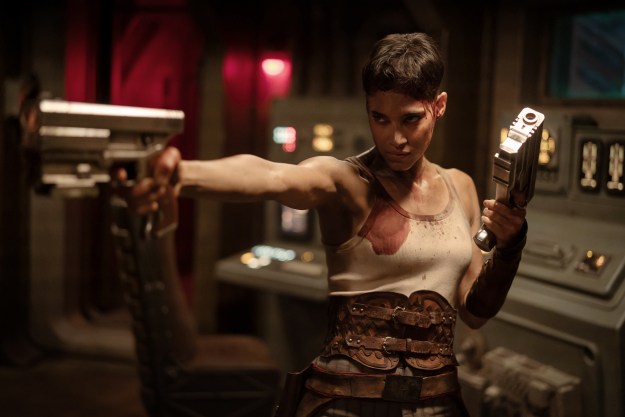
Technology has made it easier than ever to revisit seemingly “finished” pieces of pop culture, which has created an understandable backlash. After all, it’s only natural to get defensive when a story you hold dear is altered even a little.
Except that it’s not natural at all.
For most of human history, popular stories were never set in stone – even when they were, quite literally, set in stone. The Bible, for example, contains multiple accounts of the same stories, and each major translation further changes details. Fairy tales got rebooted every time they were retold. What we think of as “the complete works of Shakespeare” are really just a “best guess” as to what Shakespeare really wanted audiences to see. A trip to Florence reveals not one statue of David, but four. Later editions of J.R.R. Tolkien’s The Hobbit diverge from the earlier editions in many notable ways. For thousands of years, stories were living, breathing entities that morphed and changed with each retelling.
And then came home video.
Hands off my memories!
Videotapes accomplished what the Gutenberg press could not. They fostered a sense of “completeness.” Movies were no longer something we hoped to catch in theaters or on TV. They were readily accessible, at our fingertips, any time of day. The home-video versions were the ones that got tattooed onto our retinas. They became, by default, the definitive versions, even more so than the theatrical cuts.
All it took was one technological innovation to upend thousands of years of narrative evolution.
Physical media took the ephemeral nature of film and gave it solid form. Physical media also gave Hollywood studios a new revenue stream for their product, essentially birthing the current “franchise”-based mindset of movie-making. (Because those are the kind of movies that are most profitable after they leave theaters.)
For most of human history, popular stories were never set in stone.
But physical media is also nearing extinction, and the age of the “definitive” version is coming to an end with it. It’s been a while since we’ve had a widespread “[Famous filmmaker from the ‘80s] is ruining our childhood!” moment on the Internet. (Except “ruining” was not the R-word many hyperbolic online commenters chose for Star Wars and Indiana Jones.)
Is it because, as a society, we’ve finally accepted our fate as powerless consumers consigned to whatever fate billionaires kick down to us? Nah. We’re just entering the streaming era. Theatrical movies are expected to get some sort of marketable alteration as soon as they leave theaters, as that’s the best way to coerce people into buying Blu-rays or paying to “own” digital downloads. Changes are now happening so quickly, it’s hard to keep up.
Remakes and reboots are also becoming more common. Contrary to popular belief, the Hollywood studio system has never been about originality. It’s always been in the business of “adaptation.” The only difference between now and 50 years ago is that movies, TV shows, and comic books, have replaced novels, plays, and radio shows as the most common sources of material.

In a way, after a generation of rigidity in our most popular narratives (films), we’re finally on the verge of re-experiencing them the way our ancestors did. Stories are getting their fluidity back. Filmmakers are getting the freedom to release multiple versions of the same movie within just a few months of each. New filmmakers are getting more chances to put their spin on pre-existing work. Fans are now able to get into the game, too, putting their own marks on their favorite franchises.
Sure, as individuals, we’ll always have our preferred versions of movies, the same way we all have our favorite renditions of songs that have been re-recorded over and over again. But just like music, it’s going to get harder and harder to nail down one version that everyone will agree is the best. If, in 20 years, J.J. Abrams releases a special edition of The Force Awakens, will the reaction be as strong as when Lucas re-edited and re-released A New Hope? (A title which wasn’t even on the 1977 theatrical release, by the way, it was added in 1981.) Will 20 and 30-somethings of the near future be screaming: “J.J. Abrams Cosbyed my childhood!” at the thought of whatever alterations have been made?
Probably not. Tech took away the flexibility that human storytelling has had since time immemorial. And it’s in the process of giving it back.


